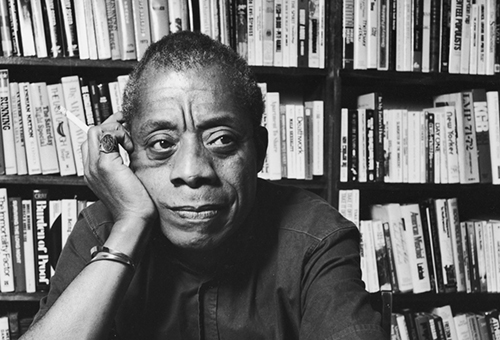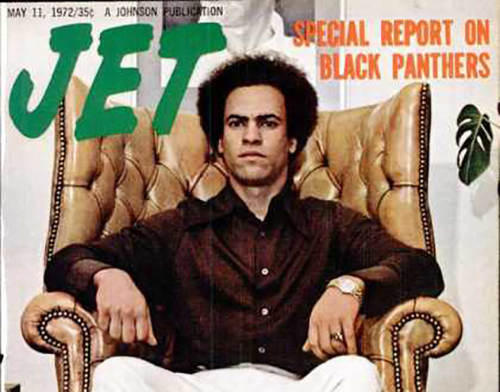It’s Black History month 2018, and we’re thinking of the black LGBTQIA (and allies) revolutionaries, thinkers, writers, leaders, & artists who inspire us by through their work, their legacy, their example.

Audre Lorde (1934-1992) ” black lesbian mother warrior poet”
“Those of us who stand outside the circle of this society’s definition of acceptable women; those of us who have been forged in the crucibles of difference – those of us who are poor, who are lesbians, who are Black, who are older – know that survival is not an academic skill. It is learning how to take our differences and make them strengths. For the master’s tools will never dismantle the master’s house. They may allow us temporarily to beat him at his own game, but they will never enable us to bring about genuine change. And this fact is only threatening to those women who still define the master’s house as their only source of support.”

Alvin Ailey (1931-1989) dancer, choreographer, civil rights activist
“To be who you are and become what you are capable of is the only goal worth living.”

James Baldwin (1924-1987) novelist, social critic, civil rights activist
“People who shut their eyes to reality simply invite their own destruction, and anyone who insists on remaining in a state of innocence long after that innocence is dead turns himself into a monster.”

DeRay McKesson (1985 – ) , civil rights activist, writer and twitter genius
“They talk about god, family and country, but it’s about God until it’s about poor people, it’s family until family is same-sex and inclusive, and country until it involved black people.”

Alicia Garza, Patrisse Cullors, and Opal Tometi, founders Black Lives Matter
“Being hungry is the hardest thing, & to this day I have prayers of gratitude for the Black Panthers, who made Breakfast for Children a thing that schools should do. We qualified for free lunch & breakfast, & without them I am almost sure we wouldn’t have made it out of childhood alive despite my hardworking parents.” – Patrisse Cullors

Huey Newton (1942-1989) co-founder The Black Panther Party
“The revolution has always been in the hands of the young. The young always inherit the revolution.”

Emory Douglas (1943-) Artist, graphic designer, Minister of Culture for the Black Panther Party
“They were visual interpretations of the conditions people lived in. Inner cities, poor communities. Combined with revolutionary imagery. The people saw themselves in the artwork. They became the heroes. They could see their uncles in it. They could see their fathers or their brothers and sisters in the art.”

Black Panthers Political Prisoners still behind bars
Herman Bell, Sundiata Acoli, Jamil Abdullah Al-Amin, Mumia Abu-Jamal, Veronza Bowers, Romaine “Chip” Fitzgerald, Eusi Zulu Heshima, Ruchell “Cinque” Magee, Jalil Abdul Muntaqim, Ed Poindexter, Pete O’Neal, Assata Shakur, Mutulu Shakur, Russell Shoats, Freddie Hilton, Robert ‘Seth’ Hayes

Toni Morrison, novelist essayist, editor, Pulitzer Prize winner
“There is no such thing as race. None. There is just a human race. Scientifically, anthropologically, racism is a construct — a social construct. And it has benefits. Money can be made off of it, and people who don’t like themselves can feel better because of it. It can describe certain kinds of behavior that are wrong or misleading. So it has a social function, racism.”

Pauli Murray (1910-1985) civil rights activist, lawyer, writer and the author of States’ Laws on Race and Color, the “bible” of the civil rights movement

Ida B. Wells (1862-1931) journalist, newspaper editor, suffragist, sociologist, feminist and early leader of the civil rights movement as one of the founders of the National Association for the Advancement of Colored People (NAACP) in 1909
“The way to right wrongs is to turn the light of truth upon them.”

Janet Mock writer, tv host, transgender rights activist
“I believe that telling our stories, first to ourselves and then to one another and the world, is a revolutionary act. It is an act that can be met with hostility, exclusion, and violence. It can also lead to love, understanding, transcendence, and community.”

Coretta Scott King (1927-2006) author, activist, civil rights leader, and the partner of Martin Luther King, Jr.
“Struggle is a never ending process. Freedom is never really won, you earn it and win it in every generation.”

Bell Hooks (1952-) author, feminist, social activist
“The struggle to end sexist oppression that focuses on destroying the cultural basis for such domination strengthens other liberation struggles. Individuals who fight for the eradication of sexism without struggles to end racism or classism undermine their own efforts. Individuals who fight for the eradication of racism or classism while supporting sexist oppression are helping to maintain the cultural basis of all forms of group oppression.” (From Margin to Center, 1984)